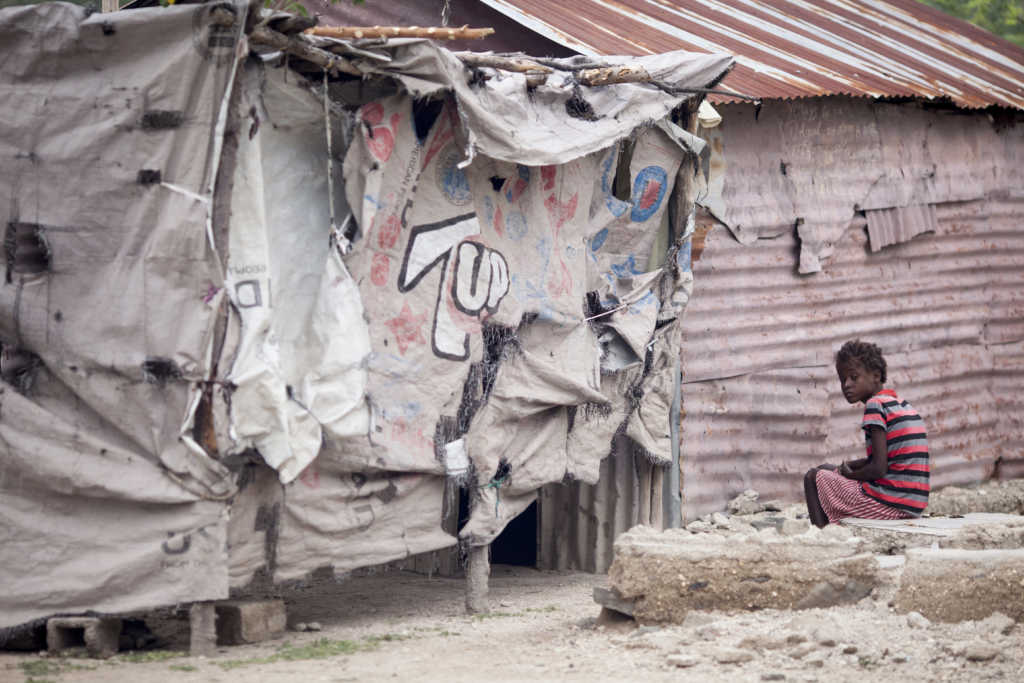President Donald Trump’s purported comments about people coming to the U.S. from “sh**hole countries” sent shockwaves throughout the world, sparking intense questions about the president’s immigration policies as well as his views on foreign nations.
READ: ‘It Belittles Women’: Cranberries Singer Dolores O’Riordan Once Passionately Slammed Abortion
Considering that Haiti was among the countries for which Trump purportedly used the aforementioned label, Faithwire decided to further explore the situation on the ground there, speaking with Dr. David Vanderpool, CEO of LiveBeyond, a faith-based humanitarian group that provides healthcare and other services to Haitians.
Vanderpool, a U.S.-born surgeon who now works and lives full-time in Haiti to help alleviate poverty there, said that he’s unsure of whether Trump actually made the “sh**hole” remarks, as the entire debacle wasn’t captured on audio or video, but that he respects the “office of the U.S. presidency” as well as Haiti.
And debate over the president’s remarks, aside, he noted that there is a reality surrounding Haiti that everyone must understand: “The country is struggling.” The problems, he said, are profound.
“The majority of the country doesn’t have adequate electricity,” Vanderpool said. “Most of the country has inadequate drinking water. In a 21st century context … we are lightyears away from where we need to be down here in Haiti.”

The doctor proclaimed that talk isn’t the answer to Haiti’s problems — and that action is the only thing that will help fix the situation on the ground. It’s for this reason that Vanderpool left Nashville, Tennessee, where he once had a lucrative surgical practice and now spends his life devoted to the Haitian cause. Despite the challenges, he believes it’s possible to turn Haiti around.
“They’re behind, but it’s not the kind of thing that can’t be overcome,” he said, detailing the scope of the problem. “The people in our area are so desperately poor that they are just trying to get by.”
Vanderpool added that he’s not even sure if Haitians are widely aware of the hoopla over Trump’s comments, seeing as electricity and basic needs are so hard to come by. Either way, he noted that “Haiti is used to being disparaged.”
“I’ve dedicated my life to taking care of the extreme poor and I see that disparagement as not being helpful,” he said of the general slurs that are sometimes hurled at the country. “Disparaging remarks only lower people who know that they are living far below the standard of the United States.”
Vanderpool went on to break down the three components of survival for any nation: clean water, nutrition and healthcare, adding that Haiti doesn’t meet the standard of having all three, with some areas lacking strength in any of those areas.

Additionally, he lamented the lack of education and jobs, explaining that the unemployment rate in some areas is at 80 percent.
“We employ 100 Haitians on our base full-time and they do things like welding or painting or building,” he said of LiveBeyond, adding that he believes countries like the U.S. can help in this regard by moving companies to Haiti or by outsourcing services there.
Vanderpool also described his organization’s “unique idea” when it comes to the debate over immigration and whether Haitians should exit their embattled country for places like the U.S.
He said that those who have the resources and know-how to leave are generally the “top tier of people” inside Haiti. When all the educated people vacate, it creates a vacuum. To illustrate how this plays out, Vanderpool noted that a school that LiveBeyond runs has struggled to find educated Haitian teachers and sometimes needs to bring in Indian or Filipino educators to fill the void.
“I’m not against people going to the U.S.,” he said. “I am for them staying at home.”

In the end, he said that recovery should focus on meeting basic needs and should then move on to assisting with education and job creation — core recovery issues that could truly help Haitians rebuild.
There’s quite a bit of consternation surrounding Haitians who might be sent back to their home country in 2019, as Trump revoked Temporary Protected Status that was granted to tens of thousands of people who came to the U.S. after the 2010 earthquake in Haiti. But even if these people are sent back, Vanderpool said that their skills could be put to good use.
“Those are people who are educated, they’ve now spent eight years in the United States,” he said. “They’ve been exposed to freemarket economics, those people are [ripe] to come back to Haiti to make a difference.”
Find out more about the fascinating work that LiveBeyond is doing here.



